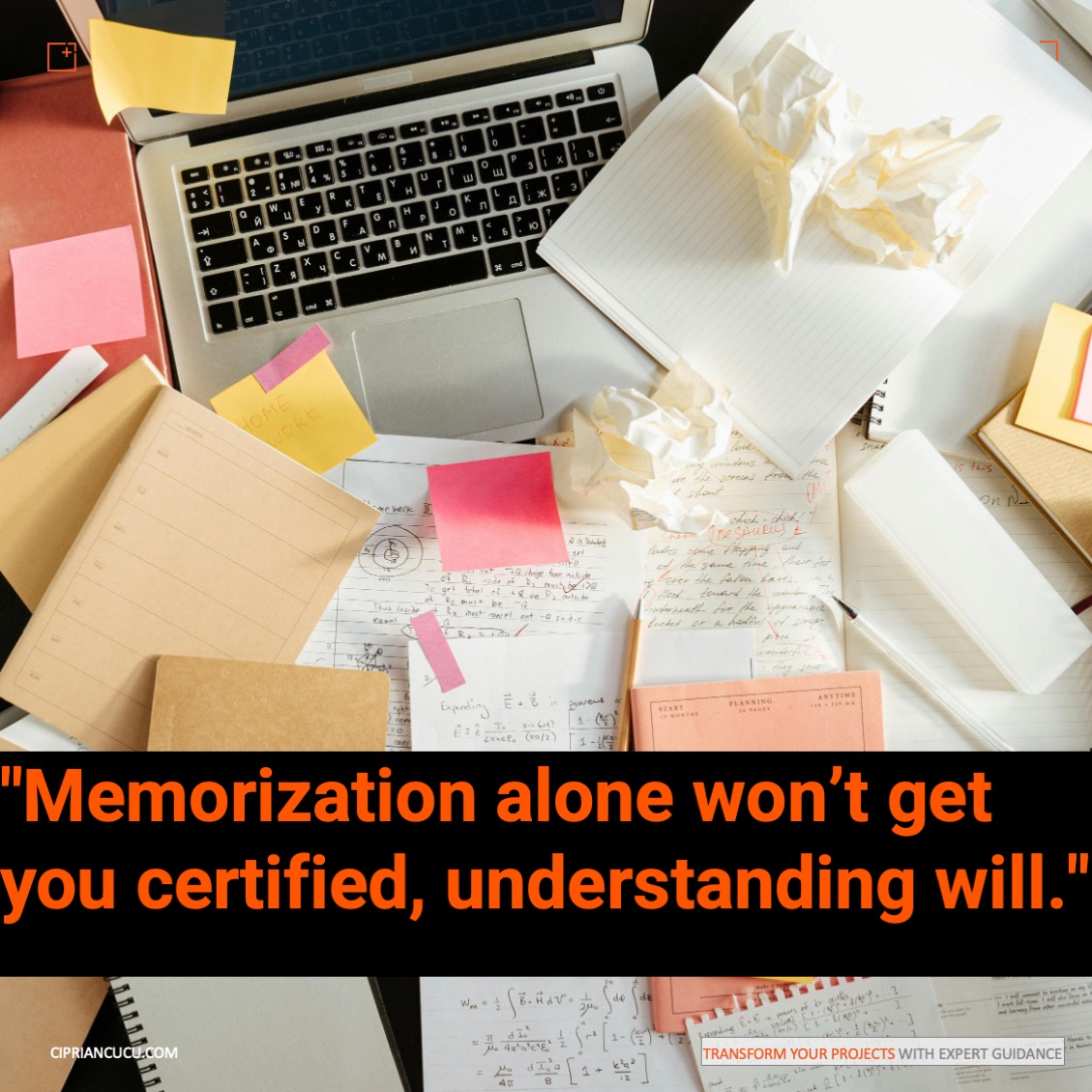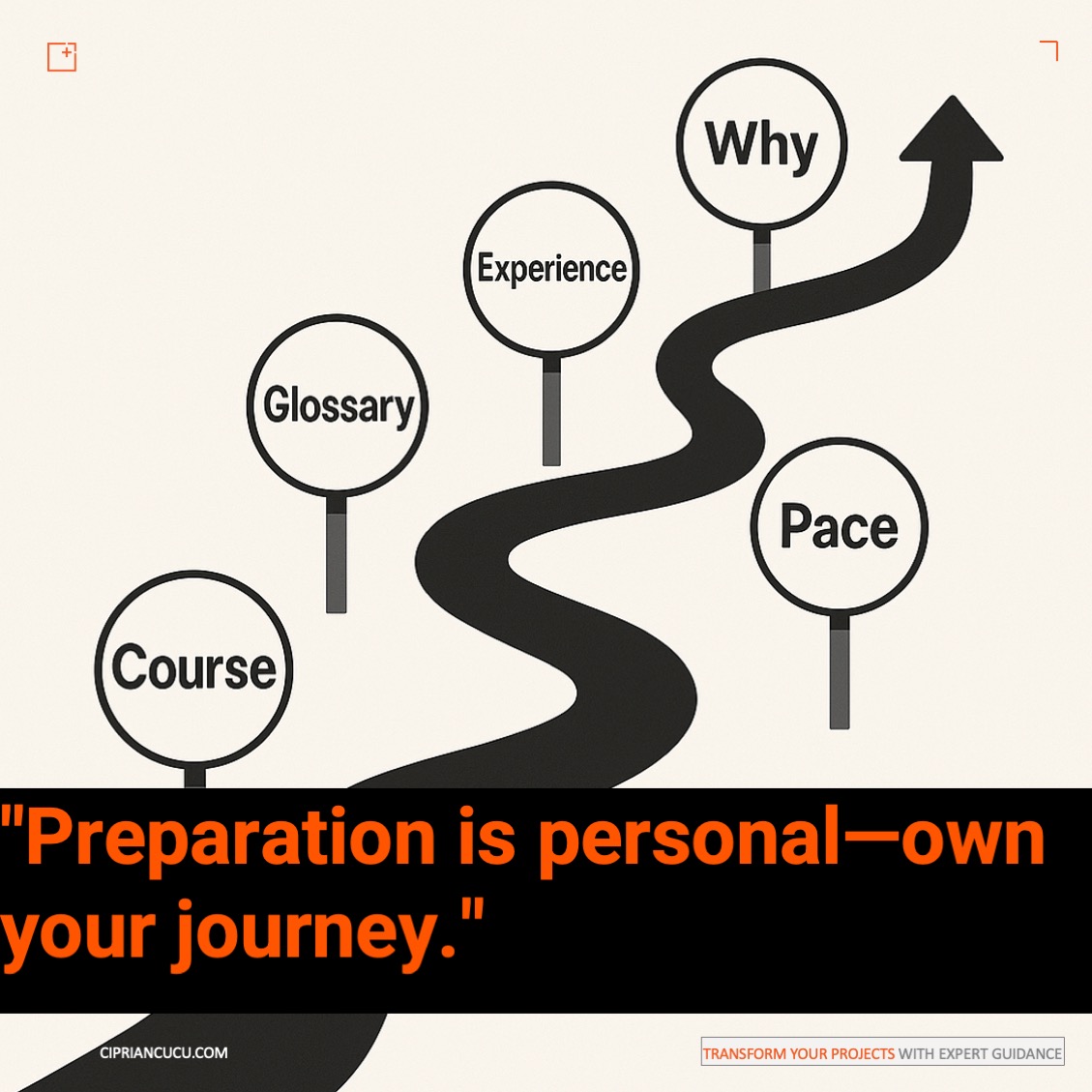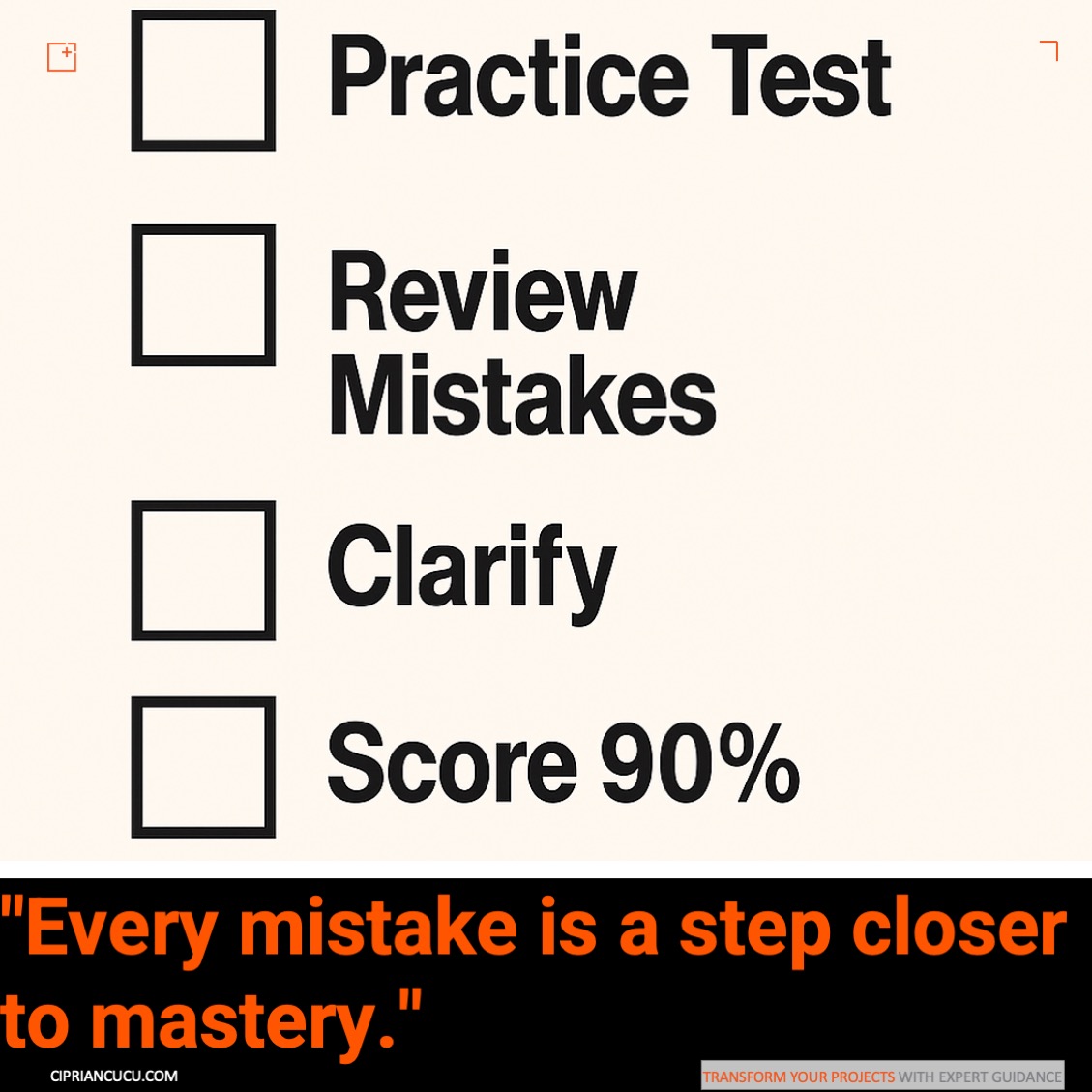This article provides a step-by-step, practical guide to help you prepare for the PMP exam with confidence. You’ll learn how to set yourself up for success, structure your study plan, and maximize your learning with proven strategies and tools.
The PMP exam is a significant milestone for project managers, opening doors to new opportunities and recognition. However, the journey is demanding—many candidates struggle with information overload, lack of focus, or ineffective study habits. A clear, actionable plan is essential to avoid wasted effort and ensure you’re truly ready for exam day.
Many PMP candidates focus only on memorizing content or rushing through practice questions. They overlook the importance of real experience, consistent review, and understanding the “why” behind each concept. This leads to burnout, gaps in knowledge, and test anxiety.

Before You Start: Set Yourself Up for Success
- Complete a PMP Exam Preparation Course Ensure you have finished an accredited PMP preparation course. This structured foundation is essential for understanding the exam content and expectations.
- Master the Glossary Spend dedicated time reading and understanding the glossary—usually found at the end of your training materials. Knowing the terminology is critical for both the exam and practical project management.
- Address the Elephant in the Room: Experience & Commitment The PMP exam requires real project management experience and a commitment to learning. It’s normal to feel discomfort during preparation—acknowledge it, accept it, and use it as motivation to move forward.
- Connect with Your ‘Why’ Draw energy from your reasons for pursuing the PMP certification. Visualize who you will become with this knowledge and how it will impact your career. Celebrate the progress you make along the way.
- Personalize Your Learning Pace This plan is proven and practical, but feel free to accelerate or slow down based on your needs. Consistency and honest self-assessment are key.

Essential Study Steps (Before the Weekly Plan)
- Review the PMBOK Guide: Focus on chapters relevant to the exam outline.
- Go Through Course Slides: Reinforce your understanding by revisiting your training materials.
- Leverage AI as Your Mentor: For any concept you don’t fully grasp, use AI tools to:
- Ask for industry-specific examples.
- Request explanations tailored to your department or experience.
- Expand your perspective with examples from other industries.
Purpose: This approach helps you connect with concepts and see them from multiple angles, deepening your understanding.
Step-by-Step PMP Exam Preparation Plan
General Principles
- Duration: ~6–7 weeks (assuming 1–2 topics every 2 days) + 1 review week
- Study Time: 7–10 hours/week (can be adjusted)
- Materials Needed: PMBOK Guide, Agile Practice Guide, Exam Prep Book (e.g., Rita Mulcahy – I would say optional with the new training methodology), access to a question bank/practice tests.
- Approach: Review each topic, summarize key concepts, practice questions, and note weak areas for extra review.
WEEK 1: Orientation & Business Environment
Day 1–2: Foundation & Strategic Alignment
- Review what the PMP exam covers and the exam structure.
- Study the foundation of project management and how projects align with organizational strategy.
Day 3–4: Project Benefits, Value & Organizational Culture
- Focus on benefits realization, value delivery, and how culture impacts projects.
Day 5–6: Change Management, Governance & Compliance
- Deep dive into change management, governance structures, and compliance requirements. Checkpoint: Take a short quiz on the Business Environment lesson.
WEEK 2: Start the Project
Day 7–8: Stakeholder Engagement
- Identify and analyze stakeholders, engagement strategies.
Day 9–10: Team Formation
- Team building, roles, and responsibilities.
Day 11–12: Shared Understanding & Project Approach
- Techniques to build shared understanding and select the right approach (predictive, agile, hybrid).
- Checkpoint: Practice scenario-based questions on initiating projects.
WEEK 3: Plan the Project (Part 1)
Day 13–14: Planning Overview & Scope
- Integrated planning, scope definition, and scope management.
Day 15–16: Schedule & Resources
- Scheduling techniques, resource planning, and allocation.
WEEK 4: Plan the Project (Part 2)
Day 17–18: Budget & Risks
- Budgeting, cost estimation, risk identification, and response planning.
Day 19–20: Quality & Plan Integration
- Quality management, integrating all plans.
- Checkpoint: Take a practice test on planning processes.
WEEK 5: Lead the Project Team
Day 21–22: Leadership & Collaboration
- Leadership styles, team collaboration, and empowerment.
Day 23–24: Performance Support & Communication
- Supporting team performance, effective communication, stakeholder collaboration.
Day 25–26: Training, Coaching, Conflict Management
- Techniques for training, coaching, mentoring, and managing conflict.
- Checkpoint: Reflect on past team experiences and relate them to these topics.
WEEK 6: Support Project Team Performance
Day 27–28: Ongoing Improvement & Performance Support
- Continuous improvement, supporting ongoing team performance.
Day 29–30: Progress Evaluation, Issues, Changes
- Evaluating progress, managing issues/impediments, and handling changes.
- Checkpoint: Case study or scenario practice.
WEEK 7: Closing the Project Phase
Day 31–32: Project Closure & Benefits Realization
- Steps for closing a project or phase, ensuring benefits realization.
Day 33–34: Knowledge Transfer
- Techniques for capturing and transferring knowledge.
- Final Checkpoint: Full-length mock exam.
WEEK 8: Final Review & Exam Readiness
- Review weak areas from practice exams.
- Final Q&A session (group if possible or 1:1 to clarify knowledge gaps).
- Tips for exam day: time management, question strategies, stress management.
Maximizing Your Learning with Practice Exams
- Test Yourself: Use official PMI practice exams or reputable alternatives like Udemy. Treat these as tools to identify knowledge gaps, not as exact exam predictors.
- Adopt a Learning-by-Exception Approach:
- Take practice tests and review all incorrect answers.
- Identify patterns in missed questions—seek clarification where needed.
- Aim for 85–90% success before booking your exam.

Final Tips for Exam Day
- Time Management: Practice answering questions under timed conditions.
- Question Strategies: Learn to quickly eliminate wrong answers and focus on what the question is really asking.
- Stress Management: Use techniques like deep breathing, short breaks, and positive visualization to stay calm and focused. I know you might roll your eyes, but panicking never helps. If my advice doesn’t resonate, do whatever works best for you.
Remember: Progress is your best motivator. Each step forward, each concept mastered, and each practice exam completed brings you closer to your PMP certification and the next stage of your professional journey.

Use this plan as your map/guide and remember: understanding, consistency, and self-reflection are your best allies on the road to PMP success.
Final notes:
If you’ve completed an official PMP Exam Preparation training, I hope you find this guide useful!
If you know someone—a friend or colleague—who might benefit from it, please feel free to forward it along.
If you’re already PMP certified, I’d love for you to share a tip or any insights I might have missed to help those still in the learning phase. Or even better, let this be the nudge to move from “I’ll do it someday” to “I’m starting now!”


0 Comments